NATO’s Strategy Towards the Black Sea Region[Over] 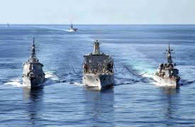 By Eugene Kogan, Tbilisi-based defence and security expert By Eugene Kogan, Tbilisi-based defence and security expert
Although the pursuit of compromises and negotiations with Russia are an unwritten rule for countries such as Bulgaria and Turkey, such pursuits damage NATO as a whole. Bulgaria, Romania and Turkey remind us of the famous fable ‘Swan, Pike and Crawfish’- by Ivan Krylov: “When partners can’t agree their dealings come to a naught and trouble is their labor’s only fruit,” while Russia is joyfully rubbing its hands and laughing behind NATO’s back. READ MORE
Pashinyan's New Tactic: 'Tougher in Public, Softer at the Negotiation Table'[Over] 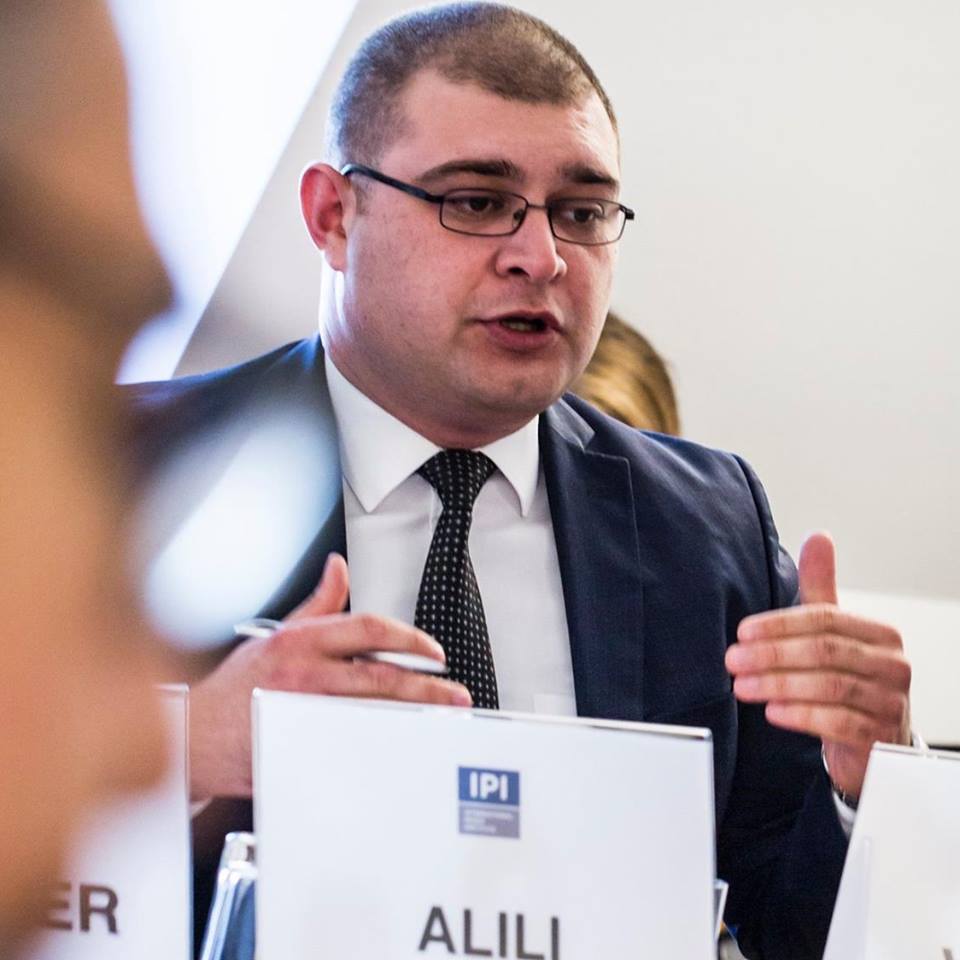 By Ahmad Alili, Head of Research, Caucasus Policy Analysis Center, Baku
By Ahmad Alili, Head of Research, Caucasus Policy Analysis Center, Baku
The next meeting between the Ministers of Foreign Affairs of Armenia and Azerbaijan will be held in the upcoming days, most likely during the UN General Assembly in New York. This is the first meeting following Armenian Prime Minister Nikol Pashinyan's "Unification" speech on 5 August in Nagorno-Karabakh, which contained an unprecedented hardline rhetoric, hurting both 'Track1' and 'Track2' processes, which shocked Baku. Following the speech, Azerbaijani officials called for a reaction from the OSCE Minsk Group co-chairs. READ MORE
Romania Faces the Militarization of the Black Sea Region[Over]  By Greta K. Wagner, Student, University of Glasgow, Intern, The European Geopolitical Forum By Greta K. Wagner, Student, University of Glasgow, Intern, The European Geopolitical Forum
Russia’s annexation of Crimea in 2014 has profoundly impacted the military balance in the Black Sea. Amidst mutual distrust and conflicting insecurity perceptions, militarization has become the dominant security paradigm. Both Moscow and the NATO members in the region are steadily building up their military capacities and engaging in tit-for-tat defense enhancements. READ MORE
THAAD in Romania: Bucharest on the Moving Sands of Great Powers’ Competition[Over] 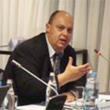 By George Vlad Niculescu, Head of Research, the European Geopolitical Forum By George Vlad Niculescu, Head of Research, the European Geopolitical Forum
On 11 April 2019, NATO confirmed US plans to deploy of the Terminal High Altitude Area Defense (THAAD) system to Romania. According to NATO officials, the United States will fulfil its commitment to NATO’s Ballistic Missile Defence by the temporary deployment of a THAAD system to Deveselu in Romania. The scheduled work is part of the United States European Phased Adaptive Approach to ballistic missile defence, which has been implemented since September 2009. In response, Russian Deputy Minister of Foreign Affairs Alexander Grushko said: “Russia is “closely following” the temporary deployment of a THAAD system to the Deveselu base in Romania.” READ MORE.
Can Azerbaijan Afford a Change of Format in the Peaceful Resolution of the Nagorno-Karabakh Conflict?[Over]  By Eduard Abrahamyan, Wider Black Sea & Central Asia regional security analyst
By Eduard Abrahamyan, Wider Black Sea & Central Asia regional security analyst
While the standoff between adversaries rages on, recent weeks saw an intensified communication between American and Russian high-level officials over the wide array of issues on which Moscow and Washington have contrasting views. On May 14, U.S. Secretary of State Mike Pompeo met with his Russian counterpart, Foreign Minister Sergey Lavrov, and later with President Vladimir Putin in the Russian Black Sea city of Sochi. READ MORE
Security Trends in the Arctic Region and their Impact on Contemporary World Politics[Over] 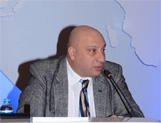 By Nika Chitadze, PhD, Director, Center for International Studies, International Black Sea University, Tbilisi By Nika Chitadze, PhD, Director, Center for International Studies, International Black Sea University, Tbilisi
The melting of the Arctic ice cap in combination with developments elsewhere concerning future of energy and military security are creating scenarios that range from low level friction to potential conflict between the Arctic littoral states. Much attention has been devoted to maritime boundary disputes involving the Arctic states: Canada, Denmark, Norway, Russia, and the US. In addition to this, the emerging interest of non-Arctic states in shipping, polar research and non-living resources exploitation also adds uncertain elements to the Arctic geopolitical development. READ MORE
Withdrawal of the US Troops from Syria and its Impact on the Security Environment in the Black Sea Region[Over]  By Nika Chitadze, PhD, Director, Center for International Studies, International Black Sea University, Tbilisi By Nika Chitadze, PhD, Director, Center for International Studies, International Black Sea University, Tbilisi
As it is known, US President Donald Trump recently adopted a decision on the withdrawal of about two thousands American military serviceman from Syria. It is possible that one of the main purposes of the American contingent’s withdrawal is the restoration of closer relations between USA and Turkey and the prevention of strengthening cooperation between Moscow and Ankara. READ MORE
- February 23, 2019 21:51PM
Uncertainties and Weaknesses in International Security Around the Black Sea Region[Over]  By Eugene Kogan, Tbilisi-based defence and security expert By Eugene Kogan, Tbilisi-based defence and security expert
It can be ascertained that until the Russian illegal annexation of Crimea, in March 2014, the Black Sea Region was perceived as a region with certain problems, but certainly not of a military nature. As a result, this region was neither high on the international community agenda nor on the radar screen of the NATO member states, and that despite membership of Bulgaria, Romania and Turkey in NATO. Furthermore, Prime Minister Recep Tayyip Erdogan and his government thought back in 2014 that they were capable to handle President Vladimir Putin’s Russia single-handed, NATO assistance was not required, and non-NATO members such as Georgia and Ukraine should not be involved. READ MORE
- February 18, 2019 21:43PM
Can Major non-NATO Ally Status Temporarily Solve Georgia’s Security Dilemma?[Over]  By Eduard Abrahamyan, Wider Black Sea & Central Asia regional security analyst By Eduard Abrahamyan, Wider Black Sea & Central Asia regional security analyst
Despite almost two decades of fanfare regarding Georgia’s pursuit to join NATO, the North Atlantic Alliance has yet to adopt a common position on the concrete timeframe of Georgia’s eventual membership. Given NATO’s protracted, uneven handling of Georgia’s enrolment process, might Georgia be better off seeking closer bilateral relations with the United States? READ MORE
- February 14, 2019 20:24PM
Russia’s Policy of Deception and Denial[Over] 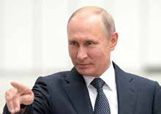 By Eugene Kogan, Tbilisi-based defence and security expert By Eugene Kogan, Tbilisi-based defence and security expert
A policy of deception and denial is the cornerstone of Russia‘s overarching strategy of confusion, paralysis and ultimately defeat of the opponent.
Consistency, conviction and perseverance are key words to describe the policy of deception and denial. The cases presented below shed light on the consistent pattern of President Vladimir Putin’s government to deceive others and depict Russia as the one that comes to the aid of the underdogs, whether in Georgia, Ukraine or elsewhere. Syria is a special case where Russia cannot abandon its military bases to aggressive Western powers. READ MORE
Armenia’s Unique Geopolitical Reality: An Asset for NATO’s Stability Projection Southwards[Over] 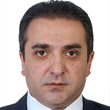 By Vahagn AFYAN, Deputy head of Mission, Embassy of the Republic of Armenia to Poland By Vahagn AFYAN, Deputy head of Mission, Embassy of the Republic of Armenia to Poland
How can Armenia’s geopolitical context contribute to stability in its immediate vicinity and in NATO’s Southern Neighbourhood?
This paper will consider Armenia’s geopolitical location from the perspective of NATO’s Southern neighbourhood and examine its cohesion, dependability and potential contribution to NATO’s intended task of projecting stability. With regard to NATO and its relationship with Armenia, the first step is to create a better understanding of the particularities of the country and its policy. Increased knowledge of the ongoing integration processes affecting various political, economic and military aspects, as well as internal political developments, will allow a full exploration of the potential for strategic partnership between the Alliance and Armenia. READ MORE
- December 21, 2018 21:49PM
Russian Aerospace Forces and the Syria Campaign: An Assessment[Over] 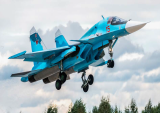 By Eugene Kogan, Tbilisi-based defence and security expert By Eugene Kogan, Tbilisi-based defence and security expert
There is no doubt whatsoever that the lion’s share of the Russian defence budget funds for the years 2011–20 was allocated to the Aerospace Forces (VKS – Vozdushno-Kosmicheskiye Sily) namely, RUR4 trillion out of total RUR19 trillion 1 (or 21 per cent of budget sum US$ 337 billion). The level of financial allocations clearly highlighted the armed forces priority in the eyes of President Vladimir Putin and the top military brass. The forces proved to be a crucial tool in the hands of President Putin and the military establishment. And the VKS continue to play an important role in President Putin’s overall military strategy in particular after a successful operation in Syria. READ MORE
- September 10, 2018 18:12PM
What Next in Iran?[Over]  By Benyamin Poghosyan, PhD, Executive Director, Political Science Association of Armenia By Benyamin Poghosyan, PhD, Executive Director, Political Science Association of Armenia
On May 8, US President Donald Trump made the decision to pull the US out of the Iran nuclear deal (JCPOA). This was done despite all efforts of European leaders to convince Trump to stay in. The President of France and German Chancellor Merkel visited Washington late April and UK Foreign Secretary Johnson was in DC on May 6-7. However, all failed to reach an agreement with the US President. READ MORE
How Do Russian Loans “Help” Armenia to Modernize Its Military Capabilities?[Over]  By Fuad Sahbazov, Baku-based independent regional security and defence analyst By Fuad Sahbazov, Baku-based independent regional security and defence analyst
Armenia’s dependence on Russia makes it a pivotal foothold of Moscow in the South Caucasus, as the only host country of a Russian military base in the region, as well as a member in the Russia-led Collective Security Treaty Organization (CSTO), and the Eurasian Economic Union (EEU). While the growing arms race in the region and the recent escalation of tensions in Nagorno-Karabakh increased the vulnerability of Armenia, Russia seems to have reinforced its ability to ensure full control over Armenia. READ MORE
What Next in Syria?[Over]  By Benyamin Poghosyan, PhD, Executive Director, Political Science Association of Armenia By Benyamin Poghosyan, PhD, Executive Director, Political Science Association of Armenia
The April 14 US, UK and France joint strikes in Syria and the heated debates in the UN Security Council just before and after the military action once more emphasized the growing disagreements between Russia and the Western powers on Syria. However, the targeted and limited military strikes have no ability to alter the course of the conflict. Since the launch of the Russian military operation in September 2015, Syrian government forces, with the active support of Russian and Iranian units, have made tangible successes, including the establishment of full control over Aleppo and pushing back rebel groups from the suburbs of Damascus. READ MORE
Could the EU and Russia Restore the Dialogue on European Security? [Over]  By George Vlad Niculescu, Head of Research, the European Geopolitical Forum
By George Vlad Niculescu, Head of Research, the European Geopolitical Forum
Most international analysts agree that Western relations with Russia are at their worst in thirty years, and that they are unlikely to improve unless significant geopolitical changes are going to emerge. More recently, a new academic debate has started on whether, and how, to restore the EU-Russia dialogue to meet the interests of both parties, while trying to reconcile respect for international law with principled pragmatism into creating a new European security architecture. It might be therefore worth looking at the prospects of restoring EU-Russia dialogue through the lens of security scenario planning. READ MORE
Armenia’s Karabakh Strategy, from Status Quo to Preemption[Over]  By Benyamin Poghosyan, PhD, Executive Director, Political Science Association of Armenia By Benyamin Poghosyan, PhD, Executive Director, Political Science Association of Armenia
The settlement of Nagorno-Karabakh conflict is the number one national security priority for Armenia. Armenia guarantees the security of the people of the Nagorno Karabakh Republic, having supported Karabakh during the 1992–94 war with Azerbaijan and through the years of cease-fire. Since 1994, Armenia has been involved in negotiation process in order to resolve the conflict with Azerbaijan. In recent years talks focused on the so-called Madrid Principles prepared by international mediators. Armenia accepted these principles as a basis for settlement and expressed willingness to sign a framework agreement during the summit in Kazan, Russia in 2011. READ MORE
Russian-Iranian Relations: A Mixed Bag[Over] 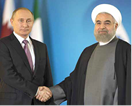 By Eugene Kogan, Tbilisi-based defence and security expert By Eugene Kogan, Tbilisi-based defence and security expert
The declaration that Russia and Iran are strategic partners lacks both solid foundation and strategic perspective.
Despite the sense of urgency generated by regional and global concerns, Russia and Iran have failed to establish broad-based economic, scientific, technical, educational and societal ties. In terms of arms exports, Russia still sees Iran as a customer, while Iran is doing its best to distance itself from Russia and to become self-reliant; Iran has recently turned to China in order to diversify its weapons imports away from Russia. Whether this divergence will continue remains to be seen. READ MORE
The New End Game (Part 2)[Over]  By Mehmood-Ul-Hassan Khan, EGF Affiliated Expert
By Mehmood-Ul-Hassan Khan, EGF Affiliated Expert
President Donald Trump has announced his most controversial “Afghan Policy” by blaming Pakistan for the strategic failure of his country in Afghanistan. He called Pakistan the only “destabilizing factor” for its “untamed militarization” of Afghanistan since 2001, by allegedly supporting, nurturing and financing terrorist groups. The new US Afghan Policy has also started a new end game in the region with prospective spill-over socio-economic, geopolitical and geo-strategic repercussions. READ MORE
Georgian Military Modernisation: Two Steps Forward, One Step Back[Over] 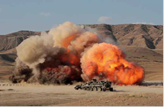 By Eugene Kogan, Tbilisi-based defence and security expert By Eugene Kogan, Tbilisi-based defence and security expert
At a press conference on 7 November 2016, Georgia’s minister of defence Levan Izoria announced plans to reform the country's armed forces, air force and air defence, but concluded that the construction of a new naval capacity was too costly. The Navy was disbanded in 2009 and merged with the Coast Guard, which is part of the Border Guard Division and reports to the Ministry of the Interior (MIA). It should also be emphasised that Izoria's reform plans were not the first and probably will not be the last ones. READ MORE
As relations between Russia-Turkey get evermore friendly, should Armenia be concerned?[Over]  By Benyamin Poghosyan, PhD, Executive Director, Political Science Association of Armenia By Benyamin Poghosyan, PhD, Executive Director, Political Science Association of Armenia
Turkey's decision to buy Russia's S-400 missile defence system opens a new stage in relations between the two countries.
Over the last two years Russia-Turkey relations have gone through tremendous transformations. Immediately after the November 2015 incident, when Turkish military jets shot down a Russian war plane, Russia imposed tough economic sanctions on Turkey and publicly accused President Erdogan of supporting terrorism, including "Islamic State". The situation dramatically changed in summer 2016 when Erdogan apologized for the November 2015 incident. READ MORE
Would have Russia found annoying the participation of Armenia in another NATO exercise?[Over]  By Benyamin Poghosyan, PhD, Executive Director, Political Science Association of Armenia By Benyamin Poghosyan, PhD, Executive Director, Political Science Association of Armenia
Armenia did not turn up for a NATO military exercise in Georgia as was expected. The most probable reason may be the attempt of Yerevan to avoid jeopardizing its strategic alliance with Russia.
On September 3rd, NATO's Agile Spirit 2017 military drills were launched in Georgia with the participation of Georgian, US, Ukrainian, Romanian, Bulgarian, Latvian and Azerbaijani troops. Armenia was among the countries due to participate, but cancelled its involvement although the Armenian Ministry of Defence issued a statement on September 4th saying that Armenia had never decided to take part in that exercise. READ MORE
- September 20, 2017 20:03PM
Turkey's Relations with and Relevance for NATO[Over]
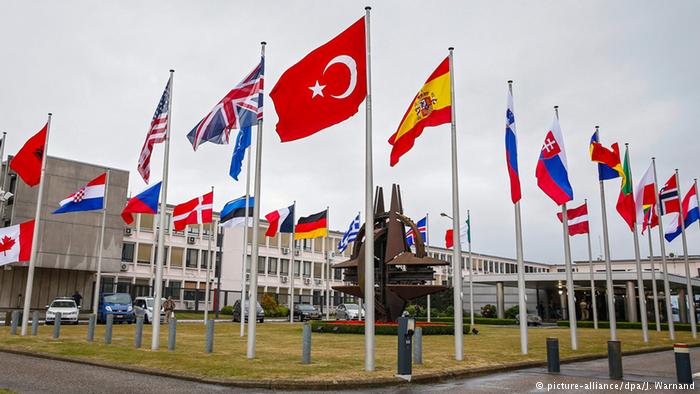 By Eugene Kogan, Tbilisi-based defence and security expert By Eugene Kogan, Tbilisi-based defence and security expert
It should be remembered that Turkey’s relations with NATO were not as smooth as perhaps some experts wished to think, even before the failed coup on 15 July 2016. For instance, back in November 2009 the AKP government was adamant that despite Turkish soldiers’ participation in the ISAF mission they were not combat troops. Turkey's position at the time irked allies in NATO and the US in particular, and it has not changed since then. READ MORE
- September 14, 2017 20:25PM
Little Hope for a Negotiated Solution to the Karabakh Conflict in the Short-Term[Over]
 By Benyamin Poghosyan, PhD, Executive Director, Political Science Association of Armenia By Benyamin Poghosyan, PhD, Executive Director, Political Science Association of Armenia
Armenian and Azerbaijani societies continue to prepare for war despite the prospect of a presidential summit in the autumn. The best-case scenario is a continuation of low intensity conflict along the line of contact.
On July 11, 2017, the Armenian and Azerbaijani foreign ministers met in Brussels for another round of negotiations on the settlement of the Karabakh conflict. According to the available information no breakthrough has been reached. READ MORE
NATO and Turkey continue to need each other[Over]  By Benyamin Poghosyan, PhD, Executive Director, Political Science Association of Armenia By Benyamin Poghosyan, PhD, Executive Director, Political Science Association of Armenia
In recent months, Turkey has been facing increasing difficulties with key NATO member states. The United States' growing reliance on Syrian Kurdish forces in Syria as a key force capable of effectively fighting Islamic State and US President Donald Trump's decision to arm Kurdish YPG units placed additional strains on bilateral US-Turkey relations, which have been sharply deteriorating since the July 2016 military coup and with Turkey's unsuccessful efforts to organize Fethullah Gulen's extradition from the US. READ MORE
|
|